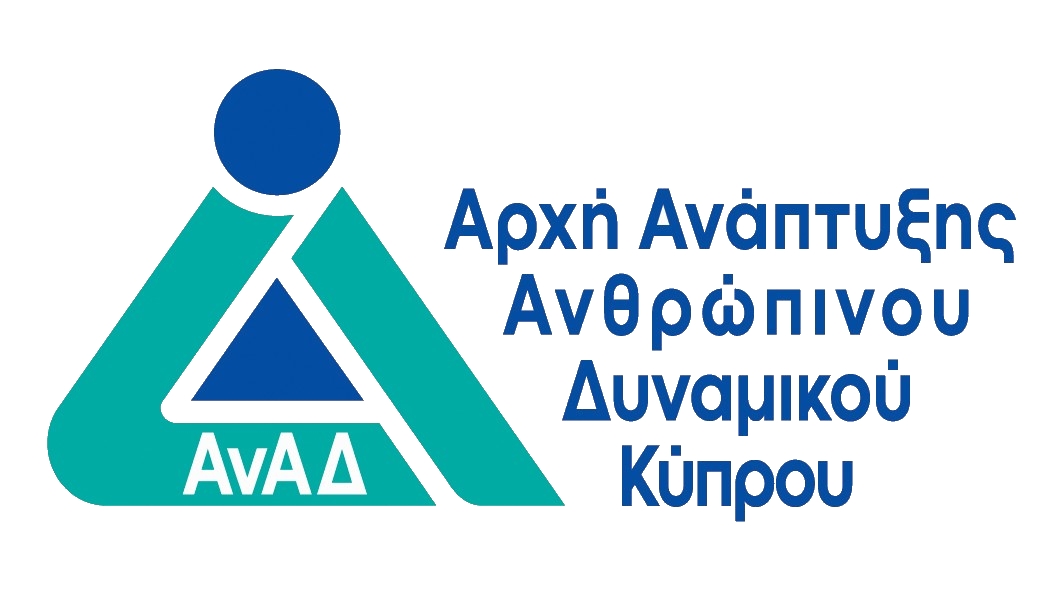
Company Taxation and the Administrative and Procedural Aspects of the Cyprus Tax System
- Οργάνωση/ Διοίκηση/ Ηγεσία - Λογιστικά/ Έλεγχος/ Φορολογικά - Νομοθεσία, Νομική & Δικηγόροι

ΠΕΡΙΓΡΑΦΗ
This program shall firstly deal with the basic mechanics of company taxation with reference to the Cyprus law and practice. The manner in which the tax is imposed, the charge the computation of assessable profits, items included in income, ascertainment of total income and the rates of Tax will be carefully studied. The aim here will be to illustrate that any item of income is either taxable as defined in the Act, or not taxable if left out of the list of taxable incomes.
Any discussion on tax law is incomplete without looking at the administrative and procedural aspects of that tax system. Thus, it is necessary to study the manner in which a taxpayer informs the Income Tax Department about the details of his tax position on matters such as taxable income, loss or sources of income. The returns made by companies will therefore be discussed. Assessments, objections and dispute settlement will be laid out mainly because it is very important in taxation for the law to lay down clear machinery for dispute resolution
In this vein, in dealing with company tax, the demand for taxpayer rights does not focus on individual taxpayers only (natural persons). Legal persons (corporate taxpayers) want to enjoy similar rights. Several cases have risen in domestic and international law in which corporate taxpayers claim their taxpayer’s rights. Courts have ruled in favour of corporate taxpayers many times.
Recently the OECD and the EU have taken steps towards fighting Base Erosion and Profit Shifting (BEPS). The OECD, supported by the G20 countries, has published 15 reports (action plans) aimed at reducing the possibilities of Multinational Enterprises (MNE’s) to erode their tax base by shifting profit from one tax jurisdiction to another. These proposals may lead to the reduction of BEPS. The downside is however that the proposals may infringe taxpayers’ rights. Therefore, an important question may always arise as to how corporate taxpayer’s rights are influenced by recent developments with respect to anti-BEPS measures for corporate taxpayers
Currently, there are insufficient scholarly articles that discuss to what extent taxpayers’ rights are promoted particularly in Cyprus. However, there is need for such academic and professional work. Cyprus just like any other country in the world needs to assess its tax policies. Therefore, a study that reveals the extent to which the tax authority promotes taxpayers’ rights will portray the current strength and weakness of tax administration in Cyprus, particularly in promoting taxpayers’ rights. Hence, the course will assist taxpayers as well as the Cyprus government Tax officials towards improving tax governance.
ΣΚΟΠΟΣ ΣΕΜΙΝΑΡΙΟΥ
Specifically this program focuses upon;
- The program aims to familiarize learners with major latest provisions of Cyprus tax laws and related judicial pronouncements pertaining to corporate taxation governance.
- This program will enable the learners to cover matters concerning the provision of taxpayers’ rights in Cyprus that are currently promoted within Cyprus domestic law, as well as taxpayers’ rights that are promoted through the Taxpayers’ Charter.
- This program deals with the fight by the EU and the OECD against Base Erosion and Profit Shifting (BEPS). The chapter demonstrates briefly techniques which are commonly used by MNEs in BEPS. Likewise, the for this program most relevant action plans of the OECD and some decisions made on these actions plans are analysed. The same is done for the EU. The main focus in this chapter is on the protection of taxpayers’ rights with respect to measures taken against BEPS.
- About the relationship between taxpayers’ rights and human rights it is suggested that, taxpayers’ rights are a derivative of human rights. Most of the human rights that are promoted in domestic law and international treaties are also accessible to taxpayers.
- The introduction of separate treaties or conventions only for taxpayers’ rights will to a certain degree increase certainty as to the rights a taxpayer is entitled to enjoy. Probably it will also reduce taxpayers’ resources being spent to confirm whether or not a certain right is intended for tax matters
ΠΕΡΙΣΣΟΤΕΡΕΣ ΠΛΗΡΟΦΟΡΙΕΣ
Training Outline
PART I: COMPANY TAXATION AND TAXPAYERS’ RIGHTS IN CYPRUS
Introduction
The Cyprus tax system
- Introduction
- History of the Cyprus tax system
- Power to tax
Corporate Tax
- Taxable subject
- Taxable object (general remarks)
- Income from business activities
- Income from investment
- Corporate tax rates
- Taxation of associated companies
- Inter-company pricing
- Taxation of group companies
- Taxation of repatriated income of a Cyprus permanent establishment
- Taxation of a controlled foreign corporation
- Taxation of dividend
- Assessment and payment of corporate tax
- Conclusion
Tax Administration (Cyprus Revenue Authority)
- Introduction
- Guidance issued by the Cyprus Revenue Authority
- Practice notes
- Advance tax rulings
- Taxpayers’ charter
- Taxpayers’ rights in the Taxpayers’ charter
- Taxpayers’ obligations in the Taxpayers’ charter
- The legal status of the Taxpayers’ charter
Tax appeal system
- Introduction
- The Tax Revenue Appeal Board
- The Tax Revenue Appeal Tribunal
- Objection with the decision of the Commissioner General of Cyprus Revenue Authority
- Conditions for objection
- Admitting a notice of objection
- Appeal to the Tax Revenue Appeal Board
- Appeal to the Tax Revenue Appeal Tribunal
- Legal aid and court fees
- Appeal proceedings at the Tax Revenue Appeal Board and Tax Revenue Appeal Tribunal
- Enforcement of the decisions of the Board or Tribunal
- Conclusion
Analysis of taxpayers’ rights
- Introduction
- Tax must be imposed by law
- Right to pay no more than the correct amount of tax
- The right to be informed, assisted and heard
- The right to be informed
- The right to be assisted
- The right to be heard
- The right to privacy and confidentiality
- The right to appeal
- Conclusion
PART II: THE ASSESSMENT OF TAXPAYERS RIGHTS WITH REGARD TO EU AND OECD INITIATIVES TAKEN TO SOLVE BASE EROSION AND PROFIT SHIFTING
Introduction
Base erosion and Profit Shifting (BEPS)
- Introduction
- Jurisdiction to tax
- Transfer pricing
- Leverage
- Anti-avoidance rules
Efforts of the EU to counter BEPS
- Introduction
- Strengthening the fight against tax avoidance and evasion
- Setting a common general anti-abuse rule
- Exchanging information among EU Member States
- Improving cooperation between EU Member States’ tax administrations
- Enhancing tax compliance through introducing a Taxpayers’ Charter in the EU
- Introduction
- Model Taxpayer Charter
- Challenges to the Model Taxpayer Charter
- Model for a European Taxpayers’ Code
- Summary
Efforts of the OECD to counter BEPS
- The OECD actions plans
Exchange of Information in the OECD BEPS-project
Assessment of taxpayers’ rights in the techniques used to counter BEPS
- Taxpayers’ rights in the BEPS project
- Right to confidentiality
- Right to appeal
Conclusion
CPD Recognition
This programme may be approved for up to 14 CPD units in Accounting and Auditing. Eligibility criteria and CPD Units are verified directly by your association, regulator or other bodies which you hold membership.
The Cyprus Bar Association (CyBAR) has confirmed that this programme is accredited for 14 CPD units.
Πληροφορίες Εκπαιδευτή
Αναλυτικό Κόστος Σεμιναρίου
Για Δικαιούχους ΑνΑΔ
- € 530.00
- € 238.00
- € 0.00
- € 292.00
- € 292.00
Για μη-Δικαιούχους ΑνΑΔ
- € 530.00
- € 0.00
- € 100.70
- € 530.00
- € 630.70
Κοστολογικές Πληροφορίες
HRDA-approved seminars are exempted from VAT for eligible organisations applying for the HRDA subsidy. A 19% VAT will apply to seminars and participants who do not qualify for the HRDA subsidy
ΠΡΟΓΡΑΜΜΑ ΣΕΜΙΝΑΡΙΟΥ
Τετάρτη - 26 Ιουν 2024
Ώρα
09:00 - 12:45
ΕΚΠΑΙΔΕΥΤΗΣ:
Δημήτρης ΣαββίδηςΤοποθεσία:
OnLine Virtual Classroom
Παρασκευή - 28 Ιουν 2024
Ώρα
09:00 - 12:45
ΕΚΠΑΙΔΕΥΤΗΣ:
Δημήτρης ΣαββίδηςΤοποθεσία:
OnLine Virtual Classroom
Τετάρτη - 03 Ιουλ 2024
Ώρα
09:00 - 12:45
ΕΚΠΑΙΔΕΥΤΗΣ:
Δημήτρης ΣαββίδηςΤοποθεσία:
OnLine Virtual Classroom
Παρασκευή - 05 Ιουλ 2024
Ώρα
09:00 - 12:45
ΕΚΠΑΙΔΕΥΤΗΣ:
Δημήτρης ΣαββίδηςΤοποθεσία:
OnLine Virtual Classroom
 Ελληνικά
Ελληνικά  English
English



 Αγγλικά
Αγγλικά
 14 ώρες
(
4 μέρες
)
14 ώρες
(
4 μέρες
)






















